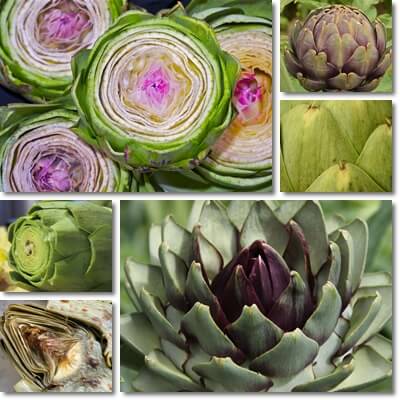Artichoke leaf extract is a type of concentrated dietary supplement made from artichoke leaves. It is best known for its hepatoprotective properties and cholesterol lowering benefits. It is used as an adjuvant in liver disease and gallbladder dysfunction, for lowering high cholesterol and as a digestive aid. The benefits of artichoke leaf extract further include anti-diabetic, anti-obesity and anti-hypertensive activities. Artichoke leaf extract side effects may include mild digestive upset, more common in conditions such as IBS, and even allergic reactions.
What is artichoke leaf extract?
Artichoke leaf extract is a dietary supplement made from artichoke (Cynara scolymus) leaves or bracts. Other plant parts may also be used, in which case the supplement will (and should) be named and labelled accordingly, with a clear mention regarding its contents. Because it’s an extract, it will have a higher concentration of select bioactive components extracted from the plant leaves (or other plant parts), most commonly luteolin, cynarin, chlorogenic acid, apigenin-7-rutinoside, narirutin and inulin. However, always read the label carefully for additional ingredients, including preservatives, additives and other herbal ingredients with therapeutic effects.

Artichoke leaf extract benefits and uses
Benefits for high cholesterol
How is artichoke leaf extract good for high cholesterol? The extract contains several biologically active chemicals with scientifically proven anti-hypercholesterolemic properties. Organic compounds in artichoke leaf material help lower total cholesterol, LDL cholesterol and triglyceride levels, and even help raise HDL (good) cholesterol, as well as exert antioxidant properties preventing lipid peroxidation.
Find out more about the benefits of artichoke for lowering cholesterol.
Benefits for liver health
Artichoke leaf extract and extracts from other plant parts support normal liver function via antifibrotic, anti-inflammatory, antioxidant and regenerative properties, and can be used as an adjuvant in liver disease and gallbladder dysfunction. Studies show extracts from artichoke leaf, receptacle, and stem protect against liver damage, promote regeneration of the hepatic cell and support liver function, with the artichoke receptacle and stem, followed by the leaf extracts being the main sources of bioactive chemicals with liver, and kidney, protective effects (source).
Benefits for gallbladder health
Artichoke leaf extract supports gallbladder function by stimulating the production and elimination of bile, acting as a digestive aid that actively combats gallbladder dysfunction and its side effects. Taking artichoke leaf extract can potentially also help alleviate gallbladder pain during gallbladder attacks (biliary colic).

Benefits for digestion
One of the primary uses of artichoke leaf extract and other byproducts such as artichoke tea is that of digestive aid. By stimulating bile production and release, artichoke leaf extract and other byproducts support normal digestion processes and help relieve indigestion.
Benefits for high blood pressure
Artichoke leaf powder is a rich source of phenolic and antioxidant compounds with anti-hypertensive benefits, helping lower high blood pressure numbers. The main compound in artichoke leaf with benefits for high blood pressure is luteolin which studies show causes immediate and dose-dependent vasorelaxation via nitric oxide production (source).
Artichoke leaf extract for weight loss
Artichoke leaf extract and other byproducts are not just good for liver health, but also show anti-obesity activity, indicating potential therapeutic uses for weight loss and weight management. Studies show artichoke improves abnormal blood sugar and lipid levels, appetite control as well as reduces hunger, contributing with benefits for weight management (source).
Anti-diabetic benefits
An animal study showed supplementation with an ethanol extract of artichoke leaves (Cynara scolymus) reduced blood sugar, total cholesterol, LDL cholesterol and triglyceride levels in diabetic rats, as well as exerted antioxidant benefits on the liver, kidneys and pancreas. In another animal study, supplementation with artichoke flowering head extract produced a significant decrease of post-meal glycemia. Artichoke extract supplementation in metabolic syndrome was shown to reduce fasting blood glucose, A1c-Derived Average Glucose and blood lipids (study), contributing to metabolic management in overweight individuals.
The antidiabetic benefits of artichoke leaf extract and extracts of other plant parts are expressed as blood sugar and cholesterol lowering properties, and increased antioxidant activities in the liver, as well as kidneys and pancreas. In addition to the hypoglycemic and hypolipidemic effects, artichoke extract further exerts a protective effect in diabetes via an anti-obesity effect, helping manage weight in overweight individuals, improving appetite control and reducing hunger. The benefits for diabetes are owed to polyphenols occurring naturally in artichoke leaf and other plant parts (e.g. caffeoylquinic acid, chlorogenic acid, luteolin-7-O-glucoside).
Artichoke leaf extract side effects
- Allergic reaction. It is possible to experience an allergic reaction from artichoke leaf extract. Symptoms to look out for are breathing difficulties (wheezing, coughing, swelling of the lips, tongue or throat), skin symptoms (a skin rash with itchy welts), low blood pressure, fainting, digestive upset with diarrhea. Seek medical help immediately if you suspect an allergic reaction. Symptoms can culminate with anaphylactic shock which represents a medical emergency.
- Digestive side effects. Artichoke leaf extract supplements can cause digestive upset with symptoms such as gas, bloating, burping, flatulence, painful abdominal cramps, even loose stools and diarrhea.
- Side effects for IBS. Inulin from artichoke leaf and extracts can cause side effects in IBS, flaring up the condition.
- Other side effects. Artichoke leaf extract stimulates the production and release of bile and can potentially worsen symptoms of conditions such as gallstones and bile duct obstruction.
